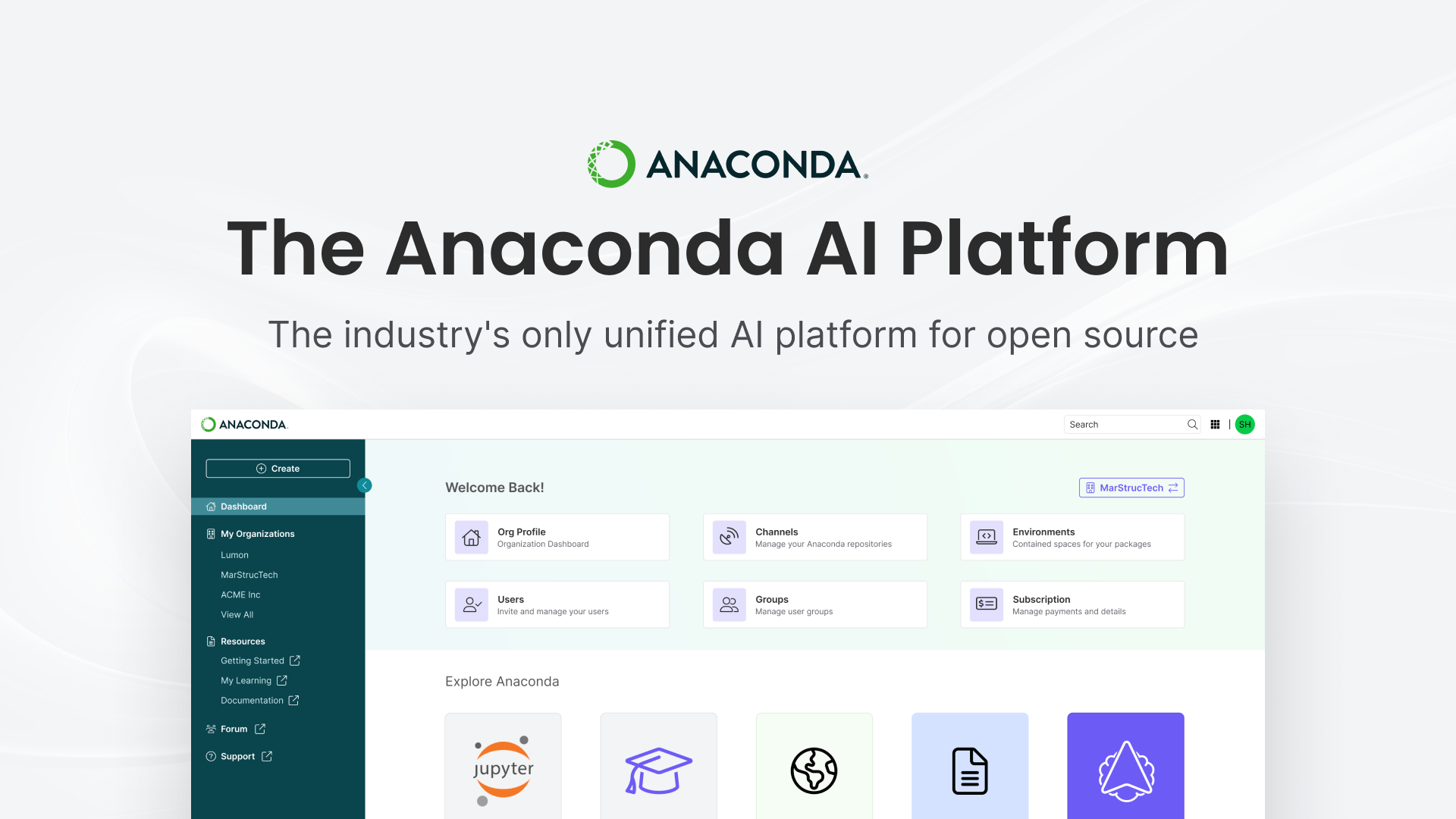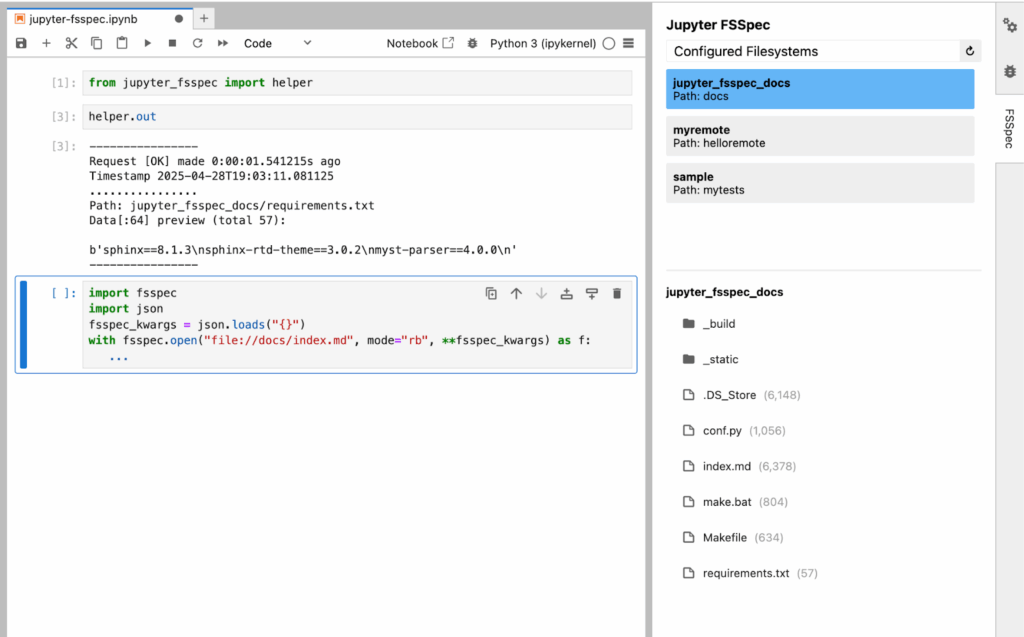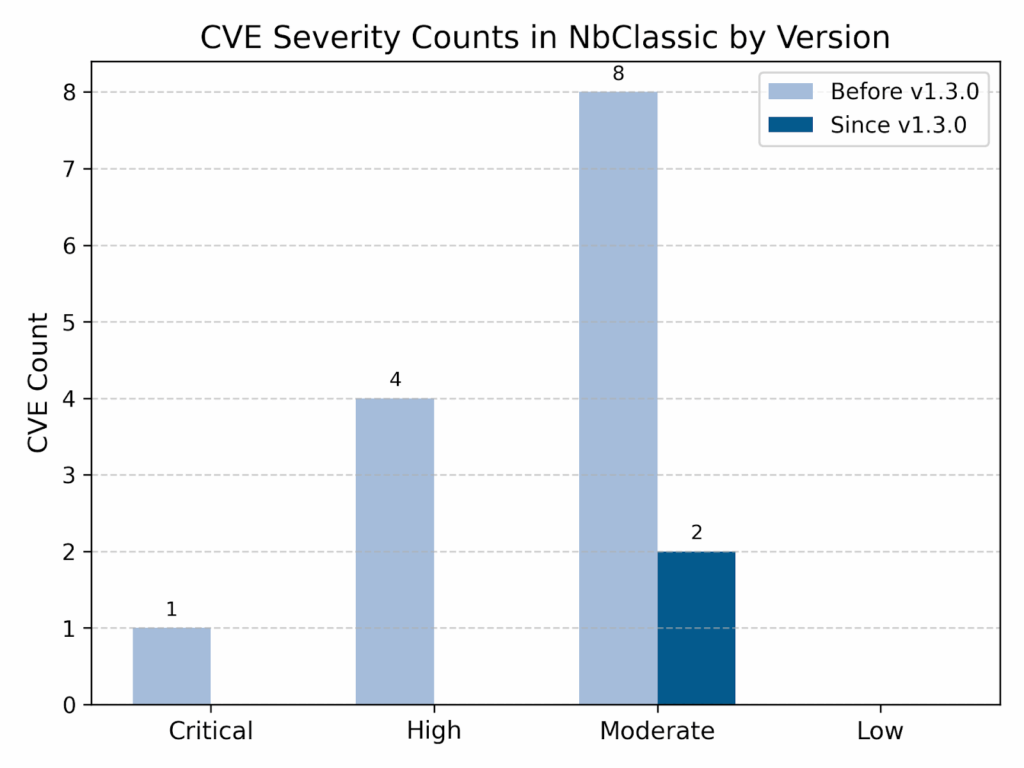Anaconda AI Platform

In today’s AI landscape, accessible and powerful tools can define anyone’s ability to learn, innovate, and deliver value whether you’re a student, independent researcher, or part of a large enterprise. As part of Anaconda’s ongoing commitment to open source software investment, which we highlighted in our recent blog post, we’ve continued enhancing Jupyter capabilities that benefit the community while also addressing specific needs across the spectrum of users.
Jupyter is an open source interactive computing platform enabling users to create and share documents containing live code, equations, visualizations, and explanatory text. It has become the standard foundation for collaborative data science, powering everything from exploratory analysis to production machine learning pipelines across thousands of organizations worldwide.
Jupyter represents more than just a coding tool, it’s a strategic platform that enables:
Data scientists and learners at all levels typically grapple with accessing data across diverse environments. Whether you’re a student working between personal storage and university systems, a researcher collaborating across institutions, or an enterprise managing sensitive information, data fragmentation complicates workflows and slows productivity.
Our recent updates to two critical Jupyter extensions directly address these needs for stable, secure environments for their work.
The latest release of Jupyter-Fsspec transforms how data scientists access both local and cloud data repositories. This extension serves as a secure bridge between Jupyter environments and virtually any storage system, from local file systems to cloud object storage like AWS S3, Google Cloud Storage, and Azure Blob Storage.
This 0.4.0 release makes it easier to connect to and manage different data sources in a more structured, reliable way. We’ve improved how users set up connections to various storage systems, added support for transferring all file types (not just text files), and enhanced how the system interacts with files stored on your local computer. Since the extension is built on fsspec which thoroughly tests the different storage environments, you can count on the highest reliability when accessing your data.
These technical enhancements deliver substantial benefits across the spectrum of users:

While innovation drives competitive advantage, stability ensures operational reliability. Our work on NbClassic 1.3.0 demonstrates our commitment to supporting the diverse Jupyter community. As the classic version of Jupyter Notebook, NbClassic provides a streamlined interface that some users prefer for its familiar styling, consistent performance, and intuitive usability. By maintaining this trusted environment alongside newer developments, we honor both innovation and stability in the Jupyter ecosystem.
This release delivers a comprehensive modernization of NbClassic through an automated build release pipeline powered by the jupyter-releaser component, enhanced packaging through migration to pyproject.toml, and critical security updates that close eleven CVEs through JavaScript dependency updates. Additionally, we’ve expanded testing coverage to include Python 3.12 and 3.13 compatibility while improving documentation specifically focused on improving developer environment setup.
These improvements provide:

These improvements are essential for the thousands of organizations and individuals who rely on NnbCclassic daily. By investing in this maintenance work, we ensure that existing educational materials, research workflows, and enterprise processes continue functioning without disruption while users determine their own pace for adopting newer Jupyter interfaces.
While Jupyter-Fsspec is still emerging in the community, the underlying technologies it builds upon (fsspec and s3fs) have become remarkably popular, ranking among the top 20 libraries on PyPI with over 300 million downloads per month each. This widespread adoption demonstrates the critical need that Jupyter-Fsspec aims to address.
Many data scientists and students are already using fsspec implicitly when:
These exact scenarios, where users need to seamlessly access remote data within notebooks, highlight jupyter-Fsspec’s potential value across various contexts:
The extension brings these capabilities directly into the Jupyter interface, creating opportunities for streamlined workflows wherever notebooks or in-app interactive visualizations are used, from introductory data science courses to cutting-edge research labs to enterprise analytics teams.
As AI becomes increasingly central to education, research, and business operations, Jupyter continues to evolve as a critical bridge between all these worlds. These extensions represent investments in a shared future where community innovation and real-world implementation reinforce each other. Jupyter’s success stems from its vibrant community combined with practical applications in demanding environments.
Anaconda’s commitment to sustaining the open source ecosystem while ensuring these tools meet enterprise demands creates a virtuous cycle where security and stability improvements driven by business requirements ultimately benefit the entire community, from individual researchers to global organizations.
These updates to Jupyter-Fsspec and NbClassic directly bridge community and enterprise data science by bringing enterprise-grade data connectivity and security to all Jupyter users. With Jupyter-Fsspec, students, researchers, and organizations alike can now seamlessly access data across diverse storage systems, breaking down technical barriers that previously separated these environments. Meanwhile, NbClassic provides a secure, stable environment that supports both educational exploration and mission-critical enterprise analysis, demonstrating our long-term commitment to the entire Jupyter Notebook community.
By enhancing these extensions, we’ve strengthened these powerful tools that bridge knowledge transfer between academic research, educational instruction, and commercial applications. We welcome your feedback on how these notebook capabilities support your specific context. Join the conversation on the Jupyter Zulip or the Jupyter community forum to share your experiences.
Whether you’re seeking community discussions or enterprise solutions, visit our website to find resources tailored to your Jupyter journey, from classroom projects to organizational deployments.ation’s approach to AI development.